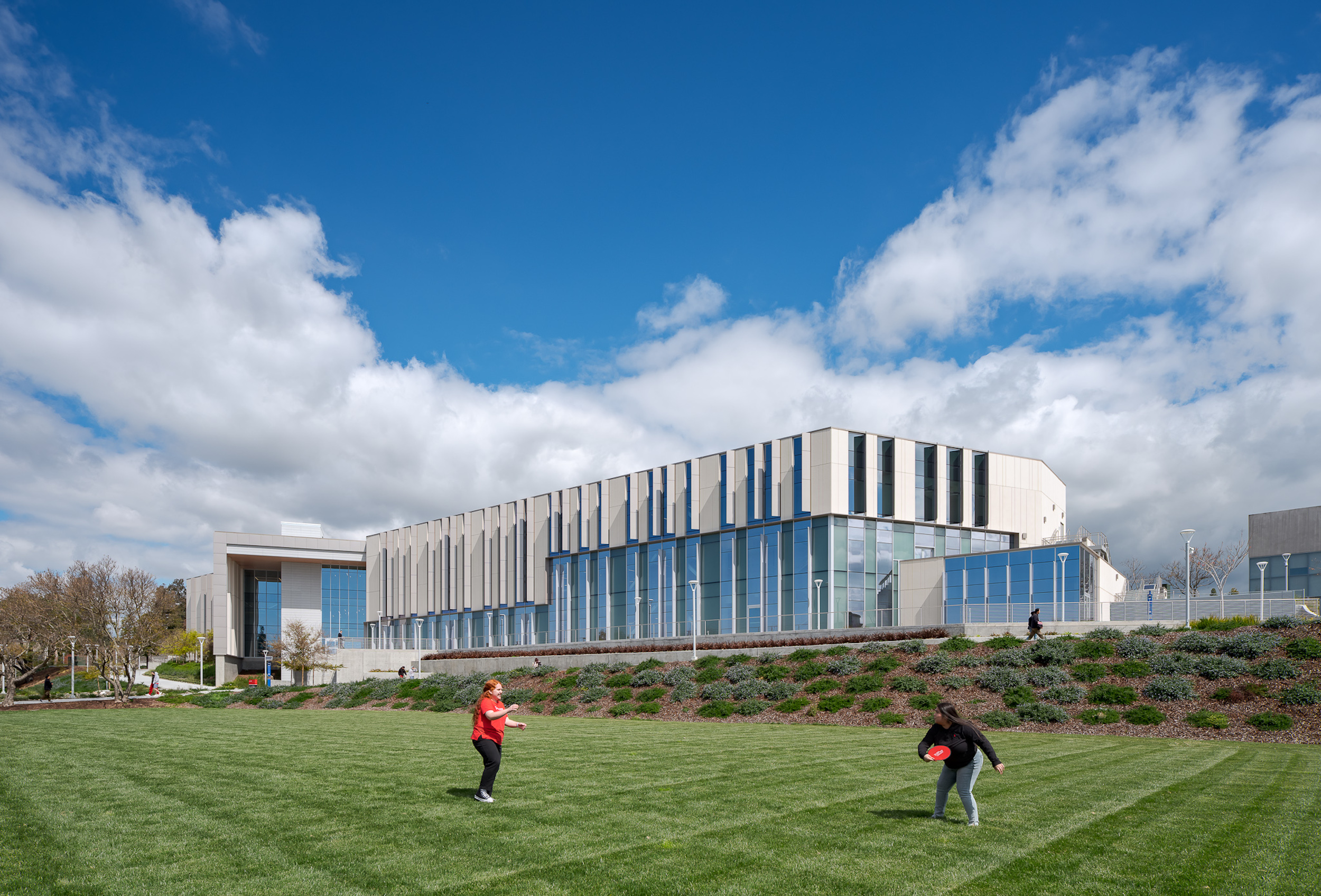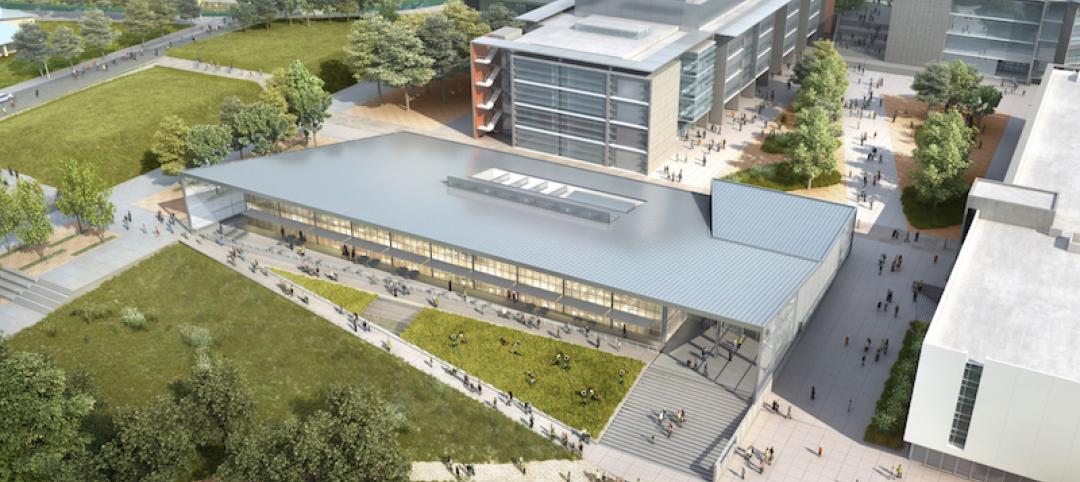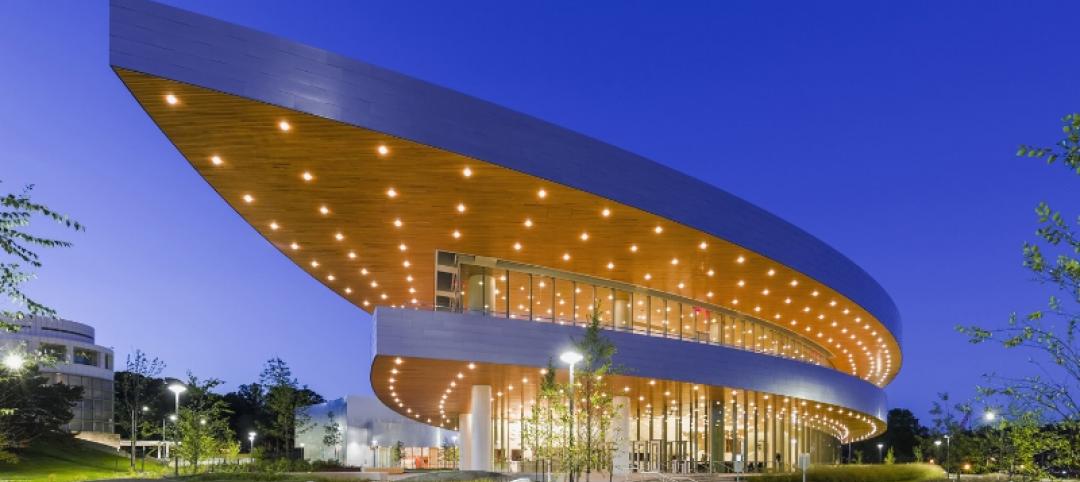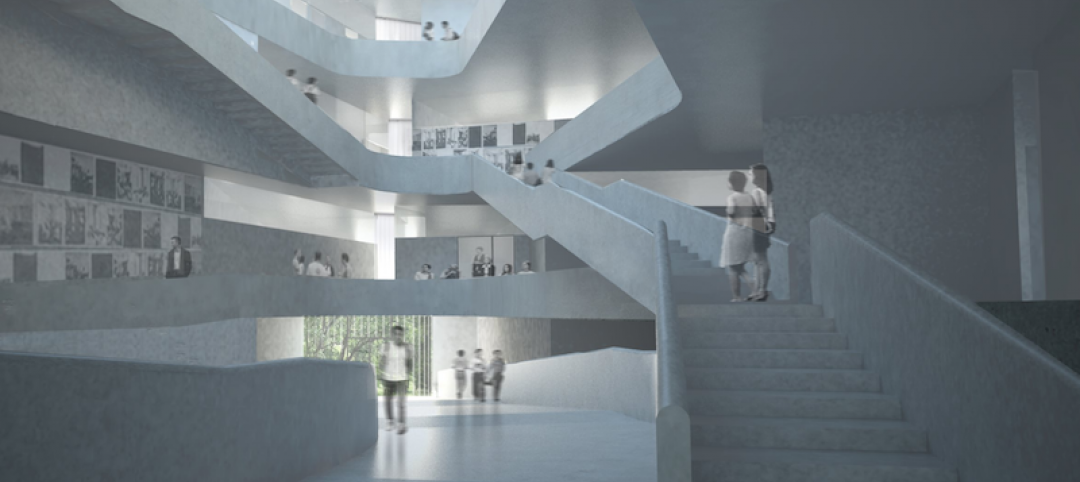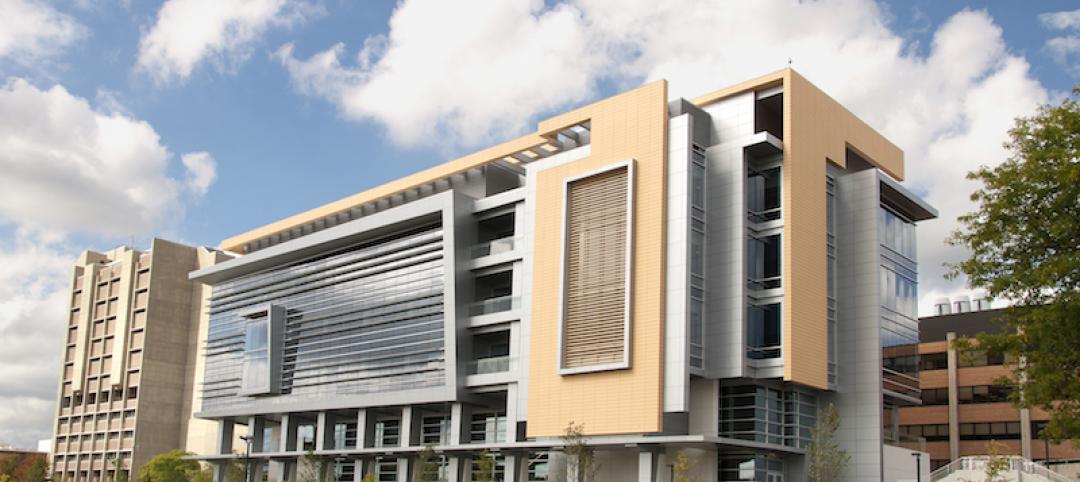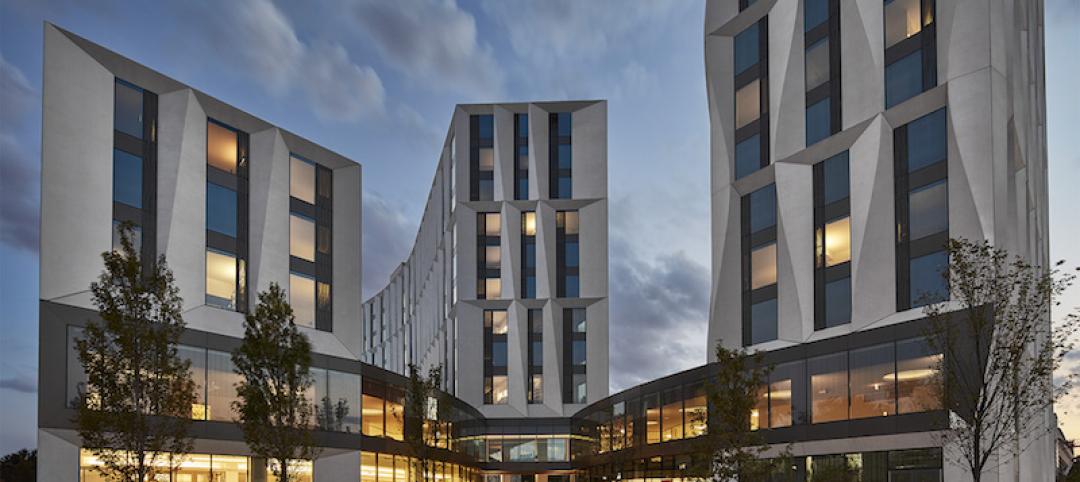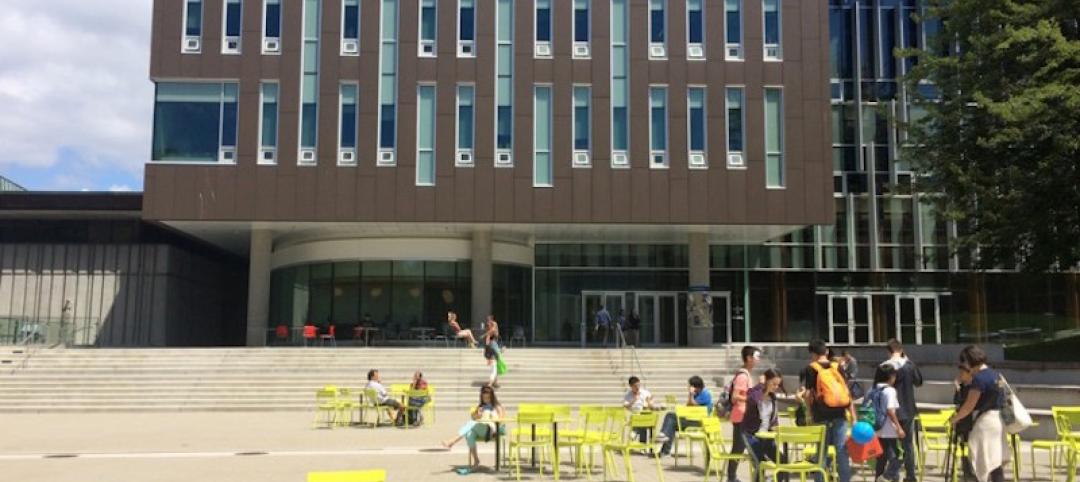A three-story “library-plus” building at California State University, East Bay (CSUEB) that ties together the upper and lower campuses was recently completed. The 100,977-sf facility, known as the Collaborative Opportunities for Research & Engagement (“CORE”) Building, is one of the busiest libraries in the CSU system. The previous library served 1.2 million visitors annually.
The new building offers students 700 more seats and 21 more group study rooms than the facility it replaced. Much more than a library, CORE brings traditional library services together with learning, innovation, and technology; collaboration and engagement; and social justice, diversity and sustainability.
It houses the Student Center for Academic Achievement (SCAA—for peer tutoring and study groups) and the Hub for Entrepreneurship, both of which help students become self-directed learners in the Information Age economy.
Equipped with state-of-the-art information and audio-visual technologies, the building provides diversity of spaces to support study rooms and collaborative commons along with multimedia production and library spaces for print and digital collections, archives, and special collections.
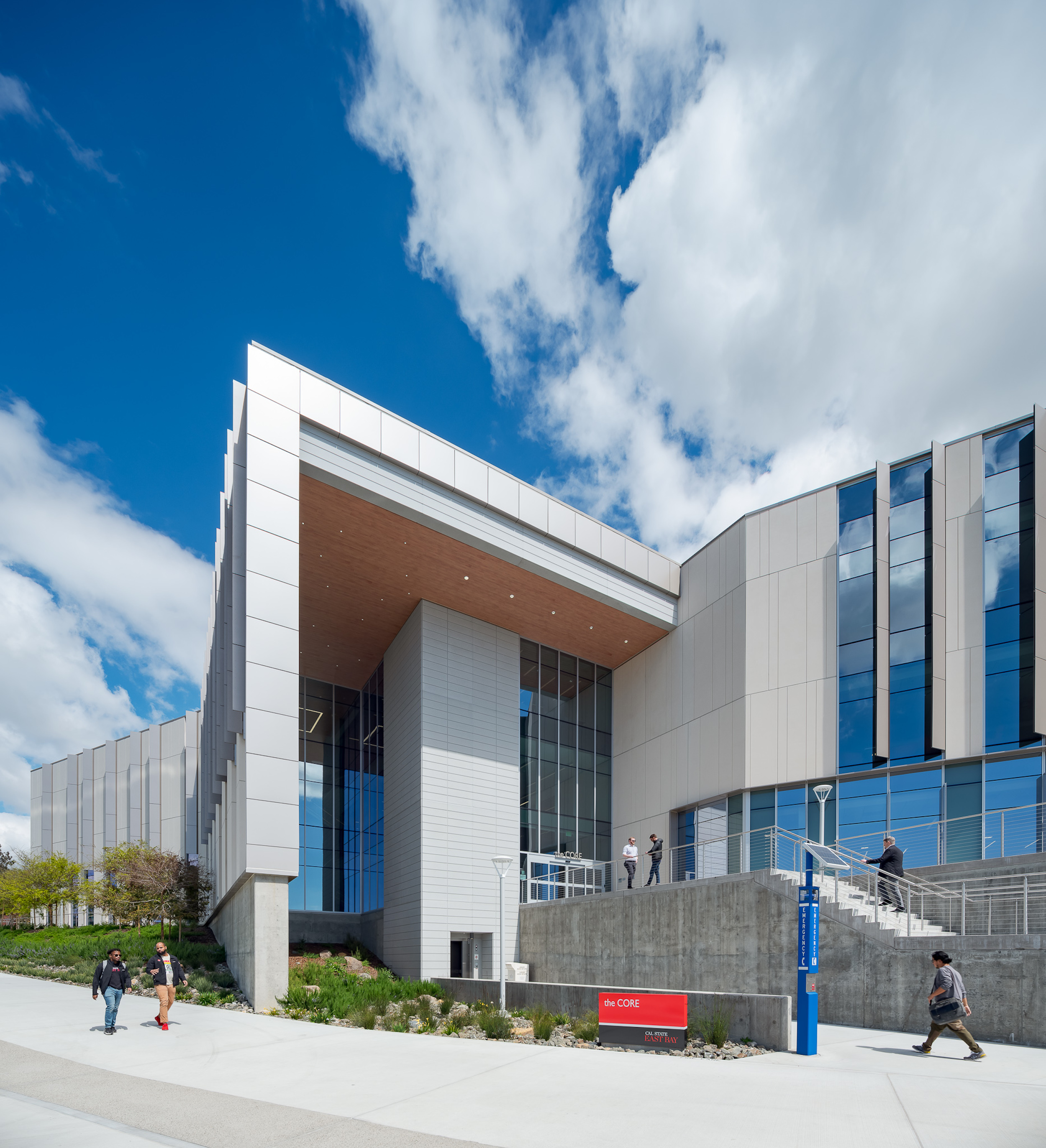
Generous open space and fenestration help knit the interior into a cohesive sum of many essential parts. In anticipation of earning LEED Gold certification, the building’s HVAC system aims for healthy indoor air quality, high levels of user controllability, and exceptional energy efficiency.
Each of CORE’s three stories offers a different approach to learning designed to help develop lifelong skills. The library is on Level Two. Level One houses a collaboration zone and innovation labs. Level Three is home to the SCAA and a roof deck provides an additional place for quiet study.
The visual dialogue within the building’s interior emphasizes the relationship between spaces that serve both the academic and social needs of students. CORE’s structure and functionality were designed to help CSUEB hone a distinct identity in the Bay Area’s rich educational landscape and enable it to be viewed as something more than a “commuter school.”
On the building team:
Owner and/or developer: California State University, East Bay
Architect of record, design architect: Carrier Johnson + Culture (Exterior)
Associate Architect: Anderson Brulé Architects (Interior)
MEP engineer: Integral Group
Structural engineer: Forell/Elsesser Engineers
General contractor/construction manager: Rudolph and Sletten
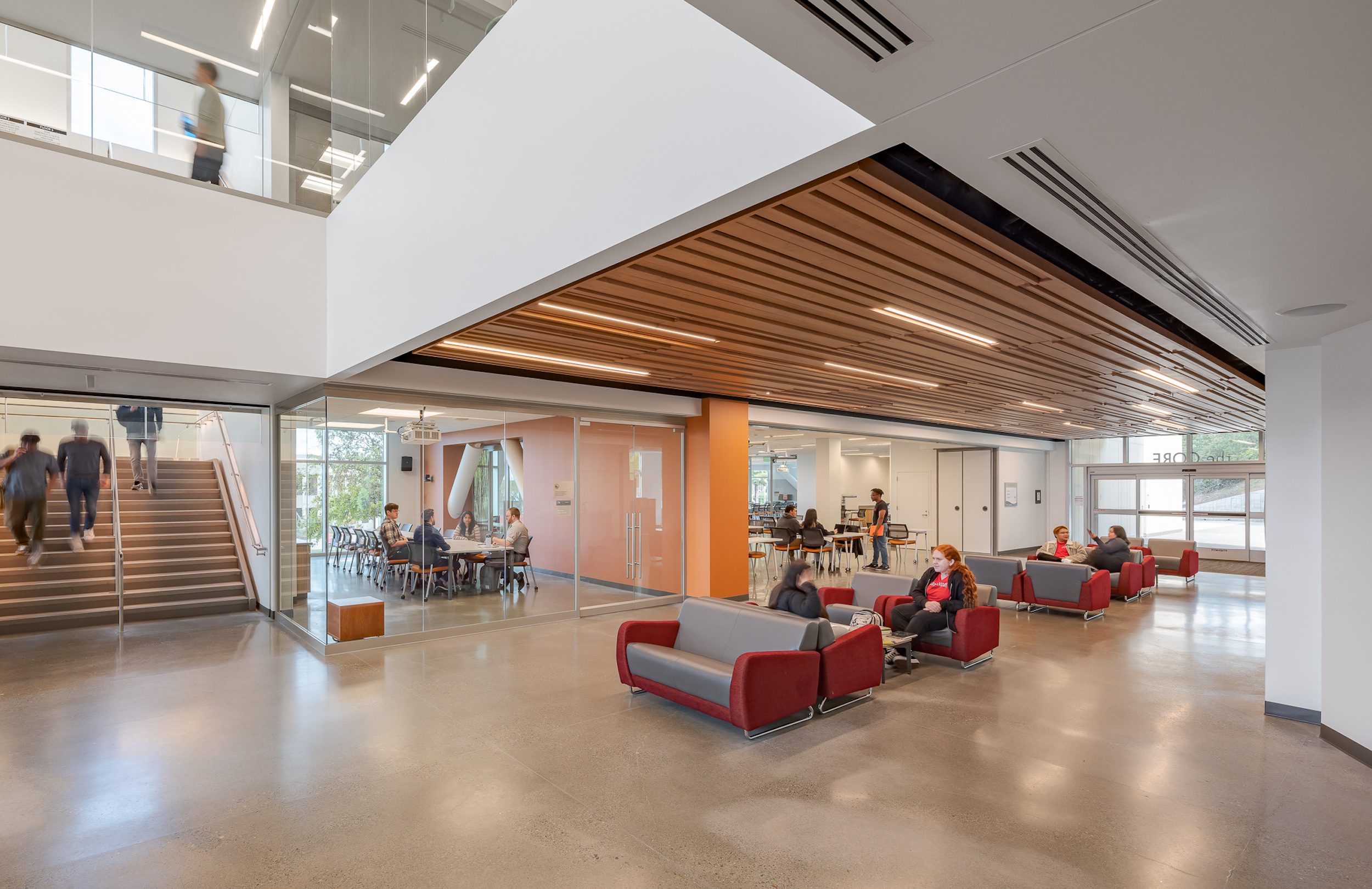
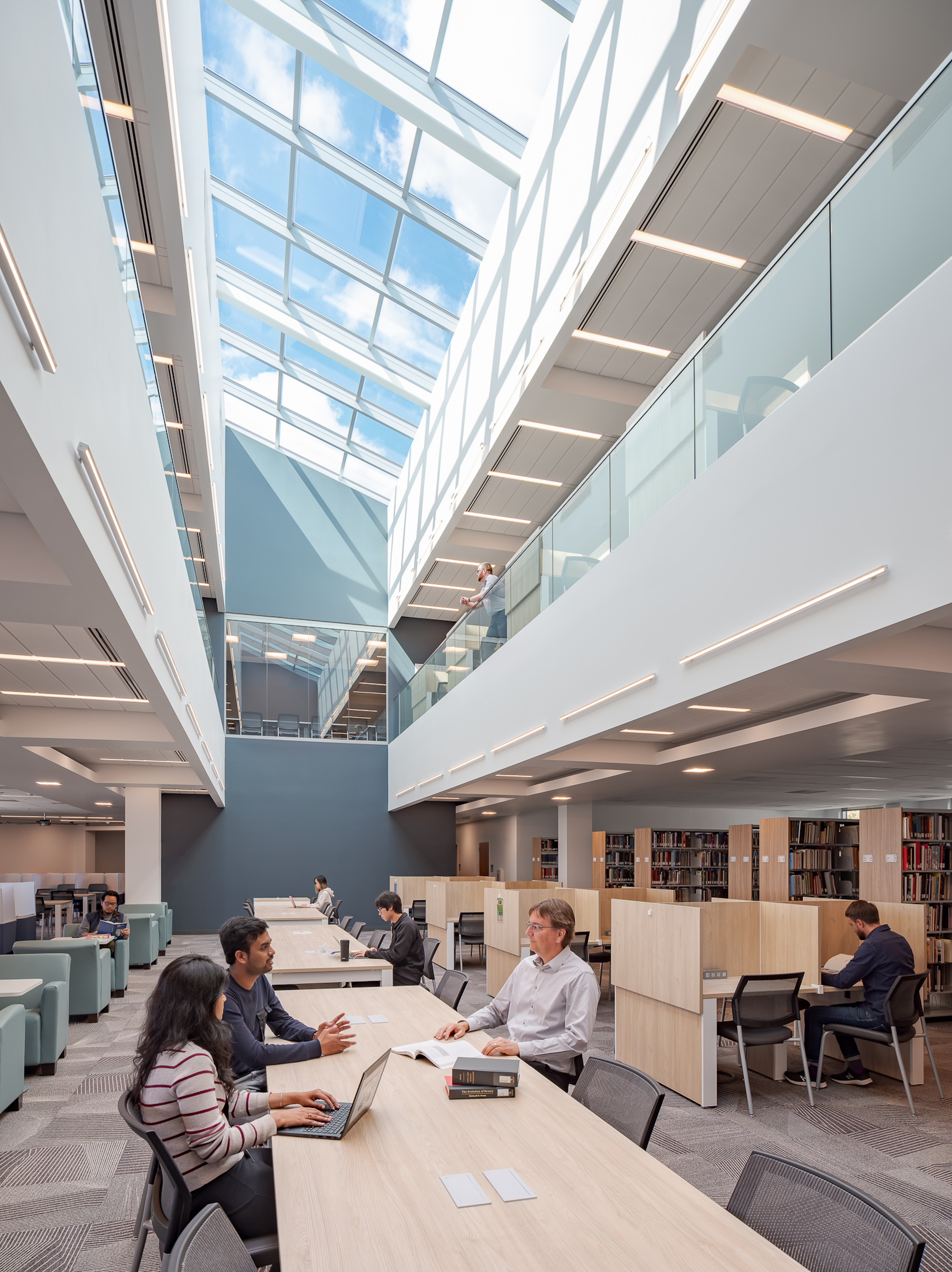
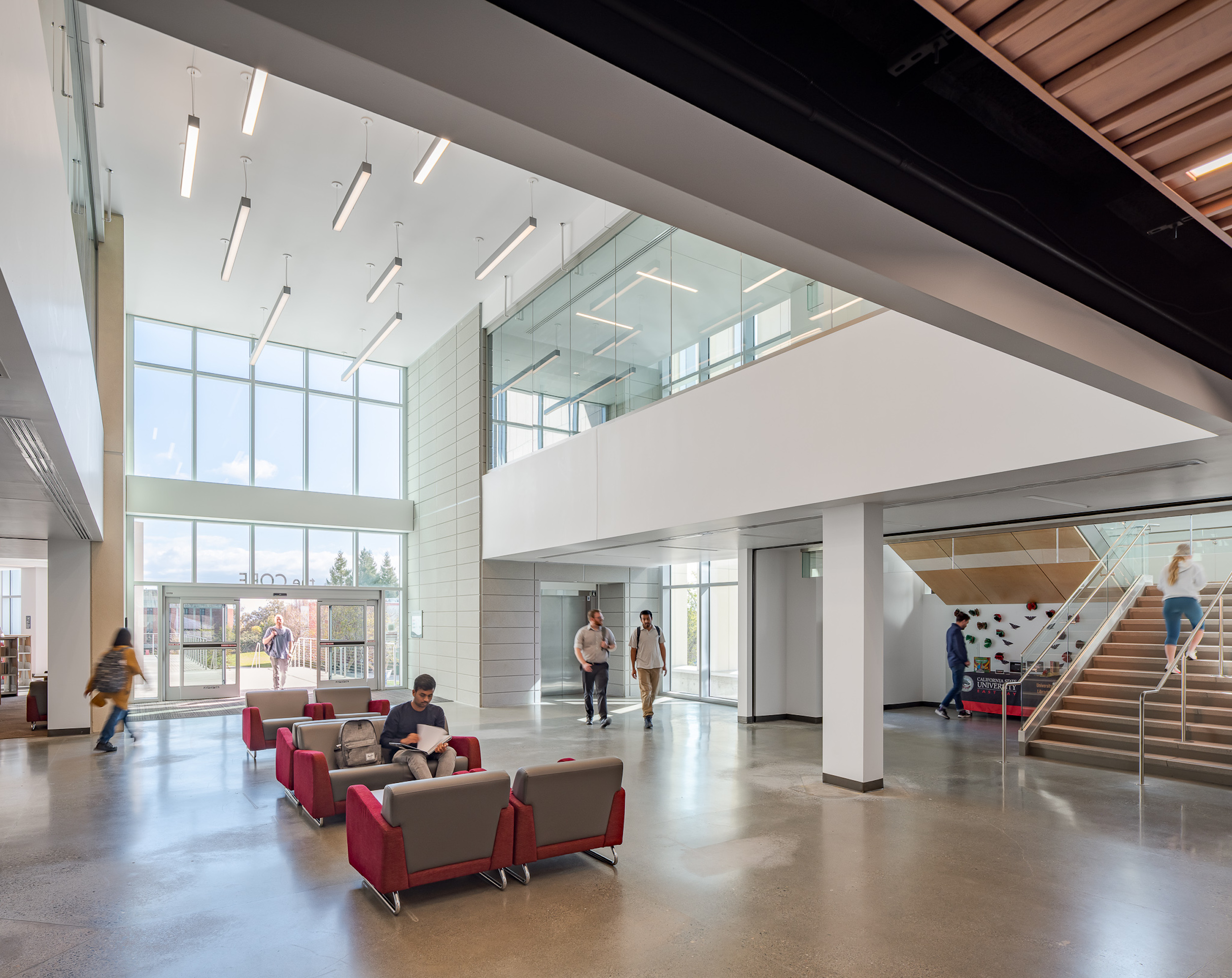
Related Stories
University Buildings | Nov 18, 2016
Stephen F. Austin State University’s new STEM building breaks ground
Kirksey Architecture designed the building that ‘will serve as a landmark for SFA.’
University Buildings | Oct 25, 2016
Columbia University dedicates its new campus with great fanfare
Transparency to the surrounding community played a big role in the campus’s design.
School Construction | Oct 23, 2016
As construction rebounds, education sector spending flattens
Post-recession slump suggests a settling in at a “normal” level similar to the mid aughts.
University Buildings | Oct 19, 2016
UC Merced to nearly double its size by 2020
Its growth strategy includes adding 1.2 million sf of space for teaching, housing, and research.
University Buildings | Oct 12, 2016
The new Hancher Auditorium opens on University of Iowa campus
The building replaces the previous Hancher, which was irreparably damaged in the 2008 flood.
University Buildings | Oct 11, 2016
The University of Iowa gets a new Visual Arts Building
The building was a collaborative effort between BNIM and Steven Holl Architects and marks the sixth facility the two firms have worked together on
Sponsored | University Buildings | Oct 3, 2016
Enhancing university life: The smart shower bead
Residential spaces that need to meet high traffic demands while accommodating an ever-changing populace creates a unique set of obstacles for any educational institution’s housing.
Sponsored | University Buildings | Sep 29, 2016
UWM’s Kenwood Interdisciplinary Research Complex: The most distinctive building on campus
The largest building on campus, it was designed by Flad Architects to comply with LEED Gold Certification standards and to meet a wide range of current and future academic needs.
University Buildings | Sep 12, 2016
The University of Chicago’s newest residence halls are designed to be more like home
Abundant common spaces give students more chances to interact.
University Buildings | Aug 17, 2016
Supporting communities of motivated learners: reflections on SCUP-51
The two themes that were consistently woven into different topics were institutional transformation and connection with students.


